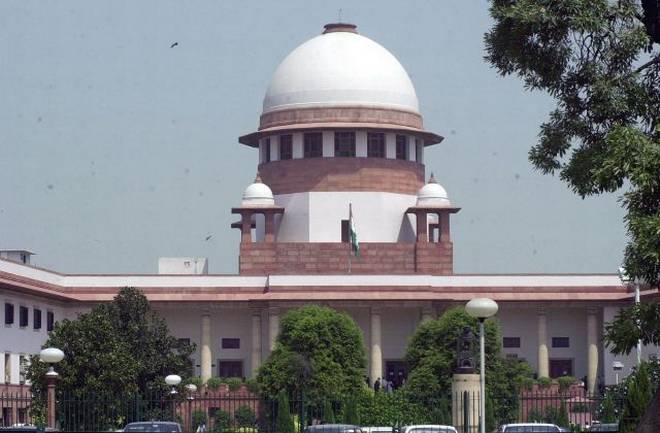Latest News
GURMIT SINGH BHATIA V KIRAN KAUT ROBINSON

The phrase Dominus Litis means the ‘master of the suit’. The person who is really and directly interested in a suit as a party to that suit is the master of a suit. The honorable judges Justice D Y Chandrachud and Justice M R Shah have held that in a suit, the Plaintiff is the Dominus Litis, he cannot be forced to add parties against whom he does not want to claim.
A party may be added to the suit at any stage of the proceedings only if the presence of the person is necessary in order to enable the Court to effectively administer justice to the aggrieved. This action is called impleadment. Order 1 Rule 10 of the Civil Procedure Code, 1908 provides for such an act.
In the case before the Apex Court was a civil appeal filed by Gurmit Singh Bhatia, the Appellant, against the Respondents, Kiran Kant Robinson and others.Issue raised was whether the plaintiffs can be compelled to implead a person in the suit for specific performance against his wish and against whom no relief has been claimed?
The original suit was a suit for specific performance to sell by original Plaintiffs (Respondents no. 2 & 3) filed against the original Defendant (Respondent 1). The suit was filed regarding a contract to sell between the two parties dated 2005, before the Court of the 4th Additional District Judge of Bilsapur , Chattisghar.
During the pendency of the suit, the original Defendant executed a sale deed in favour of the purchaser despite the injunction granted by the trial court. The Purchaser filed an application of Order 1 Rule 10 of the C.P.C. to be impleaded as a party to the pending suit as he claimed to have a legal interest as a purchaser of the suit property. The Trial Court allowed the said application. Grieved by the order of the Trial Court, the original Plaintiffs, filed a writ petition before the High Court of Chattisghar. The High Court quashed the order passed by the Trial Court. The case was then appealed to the Supreme Court.
The Appellant prayed to allow present appeal and quash the order and judgment of the High Court and hence allow the appellant as a defendant in the suit. The learned counsel of the Appellant submitted that as the purchaser of the suit property from the same vendor as the original Plaintiffs, the Appellant is a proper and necessary party to the case. He relied on the Apex Court’s decision in Robin Ramjibhai Patel v. Anandibai Rama[1], and the decision of the Bombay High Court in the case of Shri Swastik Developers v. Saket Kumar Jain[2].
The Advocate appearing on behalf of the Respondents (2 & 3) or the original Plaintiffs submitted that the said decisions are not applicable as the application for impleading was filed by the Plaintiffs of the case and is not the case at hand. It was then pointed out that the Appellant purchased the suit property despite the injunction granted by the Trial Court. Such an agreement to sell was claimed to be a forged one. The Respondents pleaded that the original Plaintiffs are the Dominus Litis and that no one can be impleaded to the suit without their consent. They prayed to dismiss the present appeals relyng on the Court’s decision in Kasturi v Iyyamperumal & Ors.[3].
The Judges considered the fact the Appellant is not a party to the initial agreement to sell and the contentions about the injunction made by the Respondents. Since the application to implead was filed by a third party, the question raised before the bench is whether a Plaintiff can be compelled to implead a person in a suit for specific performance against wish?
The bench relied on Kasturi v Iyyamperumal case, where the Apex court dealt with a similar question. The Court considered two tests to decide whether a third party must be impleaded to a case. First, the Plaintiff must have some right to some relief against the said party. Second, no effective decree must be passed in the absence of such party. The first test was observed in the decision. The Court in this decision held that a third party even as the purchased of the suit property cannot be impleaded to the suit just to find out who is in the possession of the land. The Court after considering its judgment in the Kasturi case, held that the appellant cannot be impleaded as a defendant in the suit filed by the original plaintiffs for specific performance of the contract between the plaintiffs and the defendant against the wish of the Plaintiffs are not claiming relief from said person and is not willing to fight against such a person. If he does so, in that case, it will be at the risk of the plaintiffs. Accordingly, the appeals were dismissed.
[1] (2018) 15 SCC 614
[2] 2014 (2) Mh. L.J 968
[3] AIR 2005 SC 2813



































































































